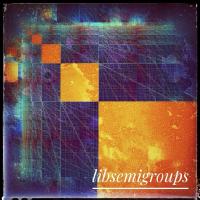Defined in stephen.hpp.
This page contains documentation for some helper functions for the Stephen class. The helpers documented on this page all belong to the namespace stephen.
template<typename PresentationType>
template<typename PresentationType>
This function triggers the algorithm implemented in this class (if it hasn't been triggered already) and then returns the the number of paths in Stephen::word_graph with source 0, target Stephen::accept_state, and length in the range min to max.
For a Stephen<Presentation> instance this is the same as the number of words are equivalent to Stephen::word with length between min and max.
For a Stephen<InversePresentation> instance this is the same as the number of words \(w\) such that \(uu^{-1}w\) is equivalent to \(u\) with length between min and max, where \(u\) is Stephen::word.
- Template Parameters
-
- Parameters
-
| s | the Stephen instance. |
| min | the minimum length of a word (default: 0). |
| max | one more than the maximum length of a word (default: POSITIVE_INFINITY). |
- Returns
- A
uint64_t.
- Exceptions
-
- Note
- The interpretation of results returned by this function differs between
Stephen<Presentation> and Stephen<InversePresentation>."
- Warning
- Termination of the Stephen algorithm is undecidable in general, and this function may never terminate..
- See also
- stephen::accepts
